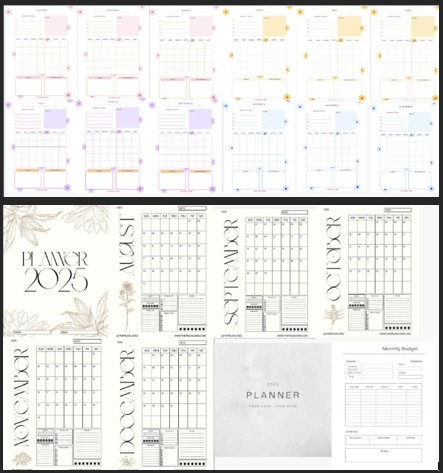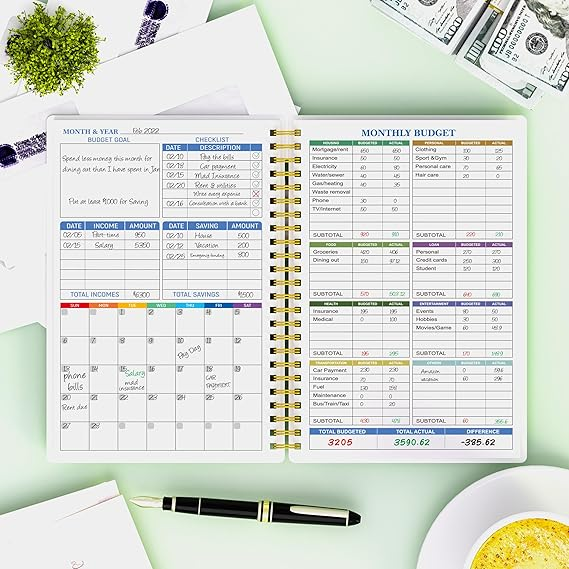50 Frugal Living Tips for Beginners
If you want a super simple way to keep more money in your pocket—frugal living is your best choice. Saving money doesn’t have to mean giving up everything fun or counting your spare change in the couch cushions. With some clever changes to your daily habits, it’s easy to cut costs, stick to your budget, and learn to live beneath your means. Here are 50 frugal living tips for beginners that actually work.
What Is Frugal Living?
Frugal living means making smart choices in your everyday life to keep your spending in check and grow your savings. You don’t have to go to extremes. Small, practical changes add up over time. The goal: spend less on things that don’t matter so you can enjoy more of what does.
Let’s go step by step. Start with a few tips and add more as they become routine.
Track Expenses and Make a Budget
Think of your budget as a money map. You can’t find your way if you don’t know where you’re starting. Write down everything you spend for a month—yes, every coffee and every online buy. Set realistic spending limits in each area. Seeing it all in one place is often the wake-up call people need to change.
Use Envelope Budgeting Apps for Simpler Money Management
Trying to track cash in envelopes may feel old school, but today’s apps make it almost effortless. These apps let you “divide” your money into virtual envelopes for each part of your life (groceries, rent, fun). When an envelope is empty, you stop spending.

Meal Plan
Meal planning is like having a GPS for dinner time. Plan your meals each week and shop with a list. This cuts down on last-minute takeout and food waste. It also forces you to think ahead—no more impulse groceries.
Brown Bag Your Lunch
Buying lunch out every day adds up, fast. Pack your own instead. Sandwiches, leftover dinners, homemade salads—most cost a fraction of what you’d pay at a cafe.
Bring Your Own Coffee
Coffee shops are convenient, but daily visits drain your wallet. Make coffee at home and use a travel mug. It’s hot, fresh, and way cheaper.
Stop Buying Water in a Plastic Bottle—Refill Instead
Reusable water bottles aren’t just eco-friendly; they’re budget-friendly, too. Fill up at home and skip the $1.50 convenience store price.

Cook Homemade Meals
Restaurant meals and takeout are budget killers. Even easy dishes—pasta, chili, tacos—can be made on the cheap and often taste better.
Keep a Stocked Pantry
A well-stocked pantry saves time and money. Stock up on sales of staples like rice, beans, pasta, and canned tomatoes. This makes meal planning easier and cuts down on last-minute grocery runs.
Invest in a Good Slow Cooker
Slow cookers turn cheap cuts of meat and basic veggies into delicious meals. Toss in your ingredients before work and come home to dinner ready.
Try Meatless Meals
Meat is often the priciest part of a meal. Try swapping in beans, eggs, or lentils once or twice a week. You’ll discover new recipes and save.
Learn What Foods You Can Freeze
Don’t toss leftovers. A freezer stash of soups, casseroles, or baked goods keeps you from dining out when you’re tired.
Stop Buying Precut and Washed Produce
Washed and chopped veggies cost more than regular ones—sometimes three times as much. Buy whole, wash and prep it yourself.

Grow Your Own Food
Tomatoes on the porch, herbs on the windowsill, or lettuce in a pot—growing even a little gives you fresher produce and cuts your bill.
Create a Grocery Budget
Groceries often eat up a big part of your budget. Set a limit, make a list, and stick to it. Try cash only for this category so you aren’t tempted to overspend.
Shop Generic Goods
Store brands are almost always just as good as name brands and often cost 20-40% less.
Don’t Be Brand Specific
Staying loyal to a brand costs money. Try alternatives and see if you even notice a difference—your wallet will.
Switch to Cloth Napkins
Reusable napkins last for years and reduce your trash. If you can sew even a little, you can make your own from old shirts.
Ditch the Single-Use Items
Swap paper towels for rags, plastic bags for reusable ones, and disposable razors for longer-lasting blades. It’s good for your budget and the planet.
Find a Happy Medium on the Thermostat
Heating and cooling are expensive. Put on a sweater in winter, run a fan in summer, and find a temperature that saves energy without making you miserable.

Run Your Washer and Dryer Only When Full
Half-empty loads waste water, detergent, and electricity. Wait until you have a full load to run your machines.
Wash Your Laundry in Cold Water
Most clothes get just as clean in cold water. You save on energy costs and it’s better for your clothes.
Hang Your Laundry to Dry
Dryers eat up energy. Hang clothes to dry outside or inside on a rack. They last longer, and you cut your power bill.
Turn Out the Lights When You Aren’t Using Them
Electric bills creep up when lights are left on. Flip the switch when you leave a room.
Unplug Unnecessary Appliances
Electronics draw power even when off. Unplug chargers, toasters, and gadgets when not in use.
Cut the Cable
Streaming services cost less and offer more flexibility than traditional cable TV.
Cancel the Landline Telephone
Most people do fine with just a cell phone today. Drop your landline and pocket the savings.

Save Your Coins in a Jar
Spare change adds up faster than you think. Empty your pockets into a jar each night and cash it in after a few months.
Shop Sales
Learn when your favorite stores offer sales and plan purchases around those times. Waiting a week for a discount can pay off big.
Shop Thrift
Thrift stores, consignment shops, and online marketplaces offer amazing deals on clothes, kitchen goods, even furniture.
Shop Local
Farmers markets, local shops, and small businesses can have better prices and higher-quality goods than big chains.
Use Coupons
Digital or paper, coupons shave money off regular purchases. Check store apps for exclusive offers.
Do Your Own Repairs
Look up basic fixes on YouTube before calling a pro. You’ll be surprised what you can repair yourself with a small kit.
Sell Stuff You Don’t Use
Unused gadgets, clothes, and furniture aren’t adding joy to your life—sell them for extra cash.
Learn to DIY
Home repairs, gifts, or even simple decor—DIY projects save money and offer a sense of pride in your home.
Make Your Own Cleaning Solutions with Baking Soda, Water, and Vinegar
Commercial cleaners often cost more and work the same as homemade ones. A mix of baking soda, vinegar, and water can clean almost anything.
Use It, Mend It, Re-purpose It, Recycle It
Worn jeans? Mend the tear. Old shirts? Turn them into rags. Look for second lives for the things you own.

Work Out at Home
Skip the pricey gym. Free routines online, simple equipment, or running in a local park are all excellent options.
Keep Emergency Cash on Hand
Cash helps avoid ATM fees, covers small purchases, and comes in handy during power outages or emergencies.
Be Prepared for All Seasons
Buy next season’s clothes on clearance and keep an eye out for sales on fans, heaters, or holiday decor after the season ends.
Plan a No-Spend Weekend
Challenge yourself: spend nothing for an entire weekend. Grab books from the library, walk in the park, or binge-watch your favorite free shows.

Plan Cheap Dates
Picnics, hiking, or movie nights at home are often more memorable (and way less expensive) than going out.
Take in Free Community Events and Entertainment
Local events, outdoor concerts, or museum days often cost nothing. Look for listings in local papers or community boards.
Walk or Take Public Transport
Driving costs money—gas, insurance, parking. Use public transport, walk to work, or bike when you can.
Downsize Your House or Vehicle
If your home or car feels like more than you need, consider downsizing. Smaller spaces and vehicles save on ongoing costs.
Plan a Staycation
Discover hidden gems in your own town instead of splurging on travel. You save on lodging and travel costs.
Talk to Your Bank About Cheaper Rates
Banks often have hidden fees or better accounts available. Ask about free checking, lower-credit-card rates, or ways to avoid monthly fees.
Don’t Try to Keep Up With What Other People Have
Comparison breeds spending. Social media isn’t real life. Focus on what brings value to you and stay true to your financial goals.
Be Happy With What You Have
Contentment saves more money than any app or trick. Practice gratitude for what’s already in your life.
Make Smart Money Choices
Every decision—big or small—impacts your finances. Pause before making purchases and choose options that fit your long-term goals.
50 Real-world Frugal tips for Saving Money.
Don’t feel pressured to try them all at once. Pick five that feel right and make them habits. Watch the impact on your budget and see which ones make your life easier. When you’re ready, add more to your routine. Not sure where to start? Try bringing your lunch and coffee from home, or set a grocery budget for the week. Small steps become big savings before you know it. Frugal living isn’t about going without. It’s about finding smarter, simpler ways to enjoy life and keep more money for what matters most.















